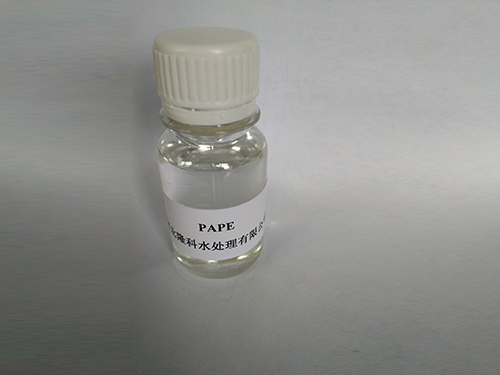industrial flocculant
Industrial Flocculants An Essential Component in Water Treatment Processes
In the realm of industrial processes, the effective management of water resources is paramount. Water treatment plays a critical role not only in meeting regulatory standards but also in enhancing operational efficiency and sustainability. Among the various chemical agents used in water treatment, flocculants have emerged as essential components. This article delves into the nature, functions, and applications of industrial flocculants, shedding light on their significance in various industries.
What are Flocculants?
Flocculants are chemical substances that promote the clumping together of particles in a liquid, forming larger aggregates known as flocs. These flocs can then be easily removed from the water, resulting in clearer and purer water. The process of flocculation is critical in various industries, particularly in wastewater treatment, mining, paper manufacturing, and food processing. Flocculants can be natural or synthetic, with each type offering distinct advantages based on the specific requirements of the treatment process.
Types of Flocculants
1. Natural Flocculants These are derived from natural sources, such as plant extracts (e.g., guar gum, starch, chitosan) and bacteria. Natural flocculants are biodegradable, making them environmentally friendly and suitable for applications where ecological considerations are essential.
2. Synthetic Flocculants These flocculants are chemically manufactured and designed to have specific properties tailored to various applications. Common synthetic flocculants include polyacrylamides and polyamines. These substances often exhibit high efficiency and performance, making them widely used in industrial applications.
Mechanisms of Action
Flocculation occurs through various mechanisms such as charge neutralization, bridging, and sedimentation. When added to a suspension, flocculants interact with the particles in the liquid, neutralizing their charges and facilitating the formation of larger aggregates. The size and density of these flocs allow for gravity sedimentation or flotation processes to effectively separate them from the treated water.
industrial flocculant

Applications of Flocculants
1. Wastewater Treatment One of the primary applications of flocculants is in municipal and industrial wastewater treatment. In these settings, flocculants help in the removal of suspended solids, organic matter, and pathogens, thereby ensuring compliance with wastewater discharge regulations.
2. Mining and Mineral Processing Flocculants are critical in mining operations, particularly in the sedimentation of mineral slurries. They enhance the efficiency of the separation process, enabling the recovery of valuable minerals while minimizing environmental impact.
3. Paper and Pulp Industry In the paper manufacturing process, flocculants assist in the removal of contaminants from pulp suspensions, improving the quality of the final product and reducing the amount of water required for processing.
4. Food and Beverage Industry Flocculants are used in the clarification of juices, wines, and beers, helping to remove solids and improve the clarity of the final products.
Environmental Considerations
While flocculants play a vital role in industrial processes, it is essential to consider their environmental impact. The use of synthetic flocculants can raise concerns over potential toxicity and long-term effects on ecosystems. As such, there is a growing trend towards the use of natural, biodegradable flocculants in various applications. This shift not only aligns with sustainability goals but also enhances the acceptance of industrial practices by regulatory bodies and consumers alike.
Conclusion
Industrial flocculants are indispensable in enhancing water treatment processes across a multitude of industries. By effectively facilitating the removal of suspended solids and improving water clarity, flocculants contribute significantly to the efficiency and sustainability of industrial operations. As industries continue to face challenges related to water scarcity and environmental regulations, the development and application of effective flocculants will remain a focal point in the quest for cleaner, more efficient production processes. Thus, understanding the diverse types, mechanisms, and applications of flocculants is crucial for professionals engaged in water treatment and industrial operations.
-
lk-319-special-scale-and-corrosion-inhibitor-for-steel-plants-advanced-solutions-for-industrial-water-systemsNewsAug.22,2025
-
flocculant-water-treatment-essential-chemical-solutions-for-purification-processesNewsAug.22,2025
-
isothiazolinones-versatile-microbial-control-agents-for-industrial-and-consumer-applicationsNewsAug.22,2025
-
scale-inhibitor-key-solutions-for-water-system-scale-preventionNewsAug.22,2025
-
organophosphonates-versatile-scale-inhibitors-for-industrial-water-systemsNewsAug.22,2025
-
scale-and-corrosion-inhibitor-essential-chemical-solutions-for-water-system-maintenanceNewsAug.22,2025





